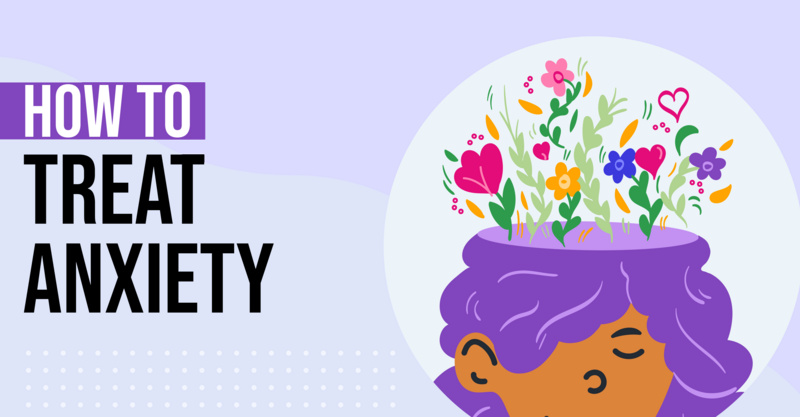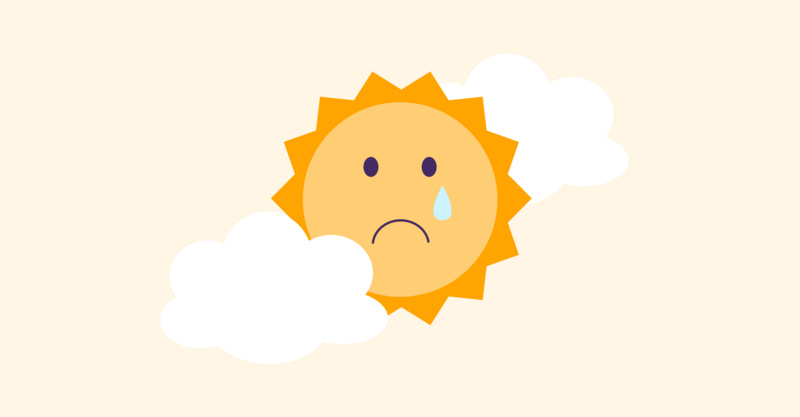Key Points
- Menopause is a natural stage in a woman's life, characterized by a decline in hormones produced by the ovaries, which leads to the cessation of menstruation.
- Common symptoms of menopause include vaginal dryness, mood disturbances, hot flashes, concentration issues, hair changes, and weight gain.
- Menopause can be caused by natural aging, surgical or medical procedures, or primary ovarian insufficiency due to genetic or autoimmune factors.
- Coping strategies for menopause include home remedies like maintaining a cool environment, regular exercise, a balanced diet, relaxation techniques, and seeking support from others.
- Treatment options are available and include consultations with a healthcare professional, medications, and hormone therapy.
Possible Symptoms for Menopause
1. An End to Menstruation
Menopause is known as the time in a woman’s life when the hormones normally produced by the ovaries decline in production. This leads to a number of symptoms, but the main one is an end to menstruation. This usually happens gradually over time as menstruation becomes less and less frequent.[1] Periods may be lighter or heavier than you’ve experienced before going away entirely.
2. Vaginal Dryness
One of the most difficult symptoms of menopause is vaginal dryness, which can cause sexual discomfort, amongst other things. It is, however, a common symptom of menopause, and there are many medical treatments available for relieving this symptom.
3. Mood Disturbances
Depression and anxiety can become more severe for women who already suffer from these conditions. They can also occur in those who have never experienced these emotional issues before. This is due to the changes in your hormones, which can make you feel much more overwhelmed, upset, or anxious than you normally would.[1]
4. Hot Flashes
About 75 percent of people experience hot flashes as a result of menopause.[1] Night sweats are another common issue, which often occurs when a woman is trying to sleep and cannot seem to get cool enough.[2] Hot flashes are an issue that leads to insomnia and trouble sleeping during menopause.
5. Problems Concentrating
The change in hormones can also cause problems with focusing or concentrating. It is a common symptom of menopause, though less discussed than others.
6. Hair Loss and Growth
Menopause commonly causes hair growth in places where it is unwanted, often on the face. It can also cause thinning of the hair on the head. Both of these symptoms can make those going through menopause feel self-conscious about their appearance.
7. Weight Gain
Hormonal changes often lead to either weight loss or gain, and in the case of menopause, weight gain is common. It can, of course, be combatted through changes in diet and exercise, but it can also be uncomfortable for those going through menopause to experience weight gain. Women also experience a loss of breast density and muscle mass.[1]
Top 3 Causes of Menopause
1. Natural Progression
The main cause of menopause is the natural aging process.[3] Menopause will happen to everyone who has a uterus at some point in their life, usually around the age of 51 or 52. Before then, those in their 40s often experience perimenopause, which is the stage before full menopause.
2. Induced Menopause
Induced menopause occurs when a person’s menopause is not brought on by natural means but rather by surgery or some other type of medical treatment. One example of this is a hysterectomy, which is a surgical process in which the uterus is removed. If the ovaries are also removed, the individual will experience immediate symptoms of menopause.[3] Other treatments, like chemotherapy or radiation therapy, can cause temporary or permanent symptoms of menopause, depending on the situation.
3. Primary Ovarian Insufficiency
Genetic issues or autoimmune disease could potentially cause primary ovarian insufficiency, which means your ovaries are not producing the normal levels of hormones.[3] This can lead to premature menopause, which happens before the individual is 40 years old. Only about one percent of women experience this type of early menopause.
2 Ways to Cope with Menopause
1. Home Remedies
There are plenty of home remedies to help you cope with the experience of menopause, which can be long and frustrating. For one, keeping cool by wearing lighter clothing and carrying a small fan can help with hot flashes.[1] Exercising regularly and managing your diet can help with weight gain. Using relaxation techniques like meditation, yoga, and others can help with feelings of depression or anxiety.
2. Reach Out to Others
Don’t suffer in silence when it comes to menopause. Reaching out to family or other people in your life who have gone through menopause can be extremely helpful if you feel alone in the face of menopause. Talking to your physician or ob/gyn is also important.
Possible Menopause Treatment Options
1. Talk to Your Doctor
Talking to your doctor can be extremely helpful when you’re attempting to treat and reduce the symptoms of menopause because you might be experiencing symptoms that could be minimized or treated. In addition, your doctor can refer you to a specialist such as a gynecologist or a therapist if you’re experiencing severe depression or anxiety.
2. Medications
Some medications can be used to minimize the symptoms of menopause, especially those that may be causing most of your discomfort and unhappiness, such as vaginal dryness or hair loss.[1] Minoxidil 5 Percent can be used for thinning hair, eflornithine hydrochloride can be used to minimize hair growth in unwanted places, and vaginal lubricants can be used to minimize vaginal dryness.
3. Hormone Therapy
Many individuals who have severe menopausal symptoms will seek hormone therapy as an option for minimizing symptoms like hot flashes, flushing, and night sweats. Hormone therapy is usually most appropriate for those under 60 years old who are within 10 years of the onset of menopause.[1] This option is often recommended, however, for use at the lowest effective dose for the shortest time necessary.[4]
Questions Your Doctor May Ask about Menopause
- When did you first notice the symptoms of menopause?
- Are you experiencing any life-threatening symptoms, such as severe depression?
- Do you feel your family and loved ones are understanding and sympathetic toward your situation?
- Have you experienced any issues with weight gain, sexual dysfunction, heart palpitations, or a loss of bone density?
- Are you interested in discussing any of the possible treatment options for the symptoms of menopause?
Menopause May Also be Known as:
- Change of life
References
Frequently asked questions
What is menopause?
Menopause is a natural phase in a woman's life when the hormones produced by the ovaries decline, leading to an end to menstruation.What are some common symptoms of menopause?
Common symptoms include vaginal dryness, mood disturbances, hot flashes, problems with concentration, changes in hair growth, and weight gain.What can cause menopause?
Menopause can be caused by natural aging, surgical or medical procedures, or primary ovarian insufficiency due to genetic or autoimmune factors.How can one cope with menopause symptoms?
Coping strategies include home remedies like keeping cool, exercising regularly, managing diet, using relaxation techniques, and seeking support from others.What are the treatment options for menopause?
Treatment options include talking to a doctor, medications, and hormone therapy.Is menopause a medical condition?
No, menopause is a natural stage in a woman's life, not a medical condition. However, it can cause symptoms that may require medical attention or treatment.Can menopause be induced?
Yes, menopause can be induced due to surgery or medical treatment.Is it necessary to consult a healthcare professional during menopause?
Yes, it's important to discuss symptoms and treatment options with a healthcare professional during menopause.
Solv has strict sourcing guidelines and relies on peer-reviewed studies, academic research institutions, and medical associations. We avoid using tertiary references.









